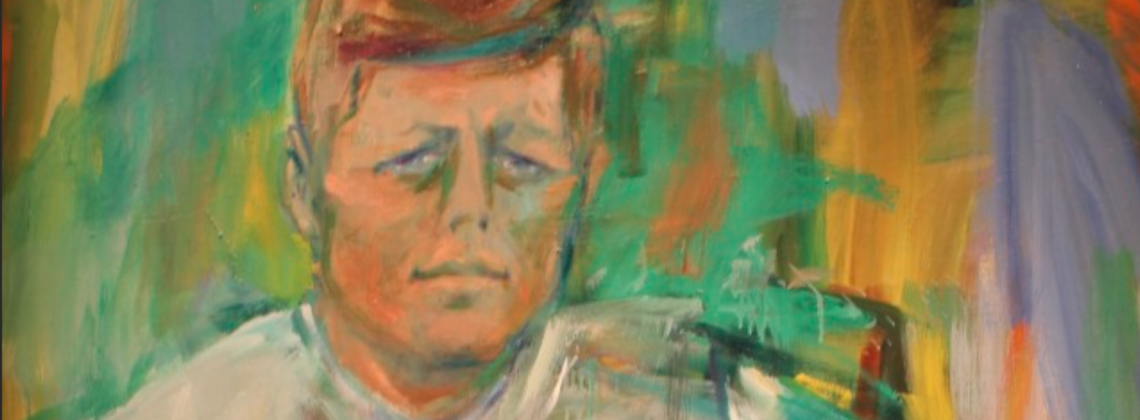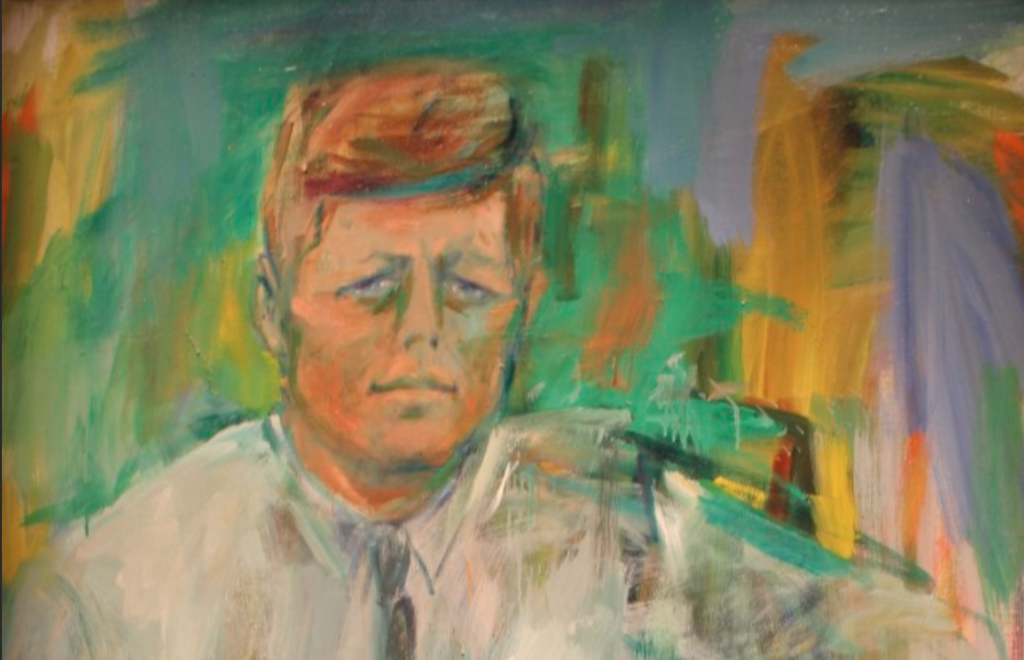

At the sixtieth anniversary of Kennedy’s assassination, it’s memory itself that is fading
As we mark the sixtieth anniversary of John F. Kennedy’s assassination, Kennedy’s legacy and place in our collective psyche could not be more doubtful. Although many Americans still vividly recall the day Kennedy died, his time in office is quickly evaporating from our memory. We are left to wonder about the significance of his “thousand days” in office—a blip in the larger span of U.S. history. Even the long-debated circumstances of the assassination now seem lost in a world newly rife with conspiratorial thinking. Is Kennedy on his way to becoming another Zachary Taylor or James Garfield?
Judging by the response to new works on the Kennedy years, including Fredrik Logevall’s ambitious biography and Stephen F. Knott’s Coming to Terms with John F. Kennedy, this may be the case. Though insightful and deeply researched, these works have not been met with the fanfare we’ve come to expect of significant reconsiderations of JFK’s life and legacy. Undoubtedly, the farther removed we are from Kennedy’s presidency the more challenging it becomes to make a case for its relevance, especially among readers who have no personal memory of the 1960s. But this is not to say that there is no substance to the Kennedy years.
On the fortieth anniversary of the assassination, the conservative National Review took aim at Kennedy worship: Americans celebrated the slain president, the magazine claimed, not for his achievements, which it deemed nonexistent, but for his beauty and his death, which ensured instant beatification, if not canonization.
Unquestionably, there were failures. The Bay of Pigs disaster stands out. The administration failed to win Congress’s support for federal aid to education, the centerpiece of its domestic agenda. Kennedy also seemed reluctant to face the challenge of racial justice directly.
The tenure of our thirty-fifth president was hardly vacuous, though. Kennedy launched the Peace Corps and the Alliance for Progress. He committed the country decisively to space exploration. He stood firm when Cuba threatened to become a military satellite of the Soviet Union, all while averting nuclear war. He then moved East and West towards détente with a landmark ban on nuclear testing. Although he had to be prompted by activists and violent confrontations, the civil rights bill he proposed was unprecedented. He risked considerable political capital in moving decisively in the direction of racial justice. We are left to wonder about the direction he would have taken in Vietnam following the assassination of Ngo Dinh Diem—a debate we will never fully resolve.
In short, if Kennedy is slowly fading into obscurity, it is not because his time in office lacked substance. In fact, some conservatives have bucked the assessment of the National Review and admitted him into their pantheon. Ira Stoll’s JFK, Conservative makes a case to that effect. Today, some observers might consider it a golden age before the Democratic Party went “woke.”
I was putting the final touches on my dissertation—eventually to become John F. Kennedy and the Politics of Faith—when the country unexpectedly elected Donald Trump in November 2016. My social and political circles were anxious. We did not know what exactly “making America great again” would entail. We felt concern for women, immigrants, Muslims, LGBTQ+ people, and other historically marginalized communities. My research on the context of Kennedy’s assassination blended emotionally with my gut reactions to present-day politics. How far we have fallen, I wanted to say. We now had a political novice who openly flirted with fringe ideas. His campaign was seared with scandals and controversial remarks that would have sunk any other presidential bid. There was no soaring, unifying rhetoric that appealed to the nation’s highest ideals. We seemed impossibly far from Camelot.
I did not have to dig much farther to realize how relevant the early 1960s actually were to this new political moment. If, for some, Kennedy was a beacon of hope, he was also a polarizing figure. Recall the fierce, unwavering resistance to the presidential candidacy of a Roman Catholic in many parts of the country. The mass murder that occurred in Orlando in June 2016 had an earlier and equally ugly counterpart in the Sixteenth Street Baptist Church bombing of September 1963. Reactions to the civil rights movement have been mirrored in far-right responses to LGBTQ+ rights. Then as now, fears of “Others” have been stoked by economic anxiety and social change.
What’s more, Kennedy’s narrow edge in the popular vote in 1960 led to a sustained public conversation about the relevance of the Electoral College. In fact, in a pale foreshadowing of 2020, Republicans in Illinois and Texas challenged (in vain) the certification of Kennedy’s victory on grounds of fraud. The far-right element—of the John Birch kind, notably—was visible enough that in the immediate aftermath of the assassination pundits conjectured that a right-wing fanatic was responsible.
It seems, then, that the challenge posed by the “Kennedy blip” is neither one of historical significance nor present-day relevance. To be sure, the struggle to find a useable past in increasingly distant events remains and deepens. This is especially true in high school and college courses, with teachers making difficult decisions as to what to leave in or take out in the limited time they have with students. This may be the same inevitable process that has confined Taylor and Garfield to relative obscurity.
Still, the erosion of the Kennedy years in our collective memory is likely owed to much larger factors. More and more we are overwhelmed by the instantaneity of technology. We must contend with an overabundance of information and our media environment seems to demand an immediate reaction—most often, immediate outrage. Historical thinking seems to enter less and less into our sense of perspective about the world we inhabit.
The fading memory of a significant moment in U.S. history—not merely the assassination but the presidency it ended—is a microcosm of this general depreciation of historical thinking, which is doing away with the guideposts we need. That, I worry, is a much more significant loss than the life and death of our thirty-fifth president.
Patrick Lacroix, Ph.D., is the author of John F. Kennedy and the Politics of Faith. He currently serves as director of the Acadian Archives in Fort Kent, Maine.
Image credit Williem de Kooning/Wikimedia Commons